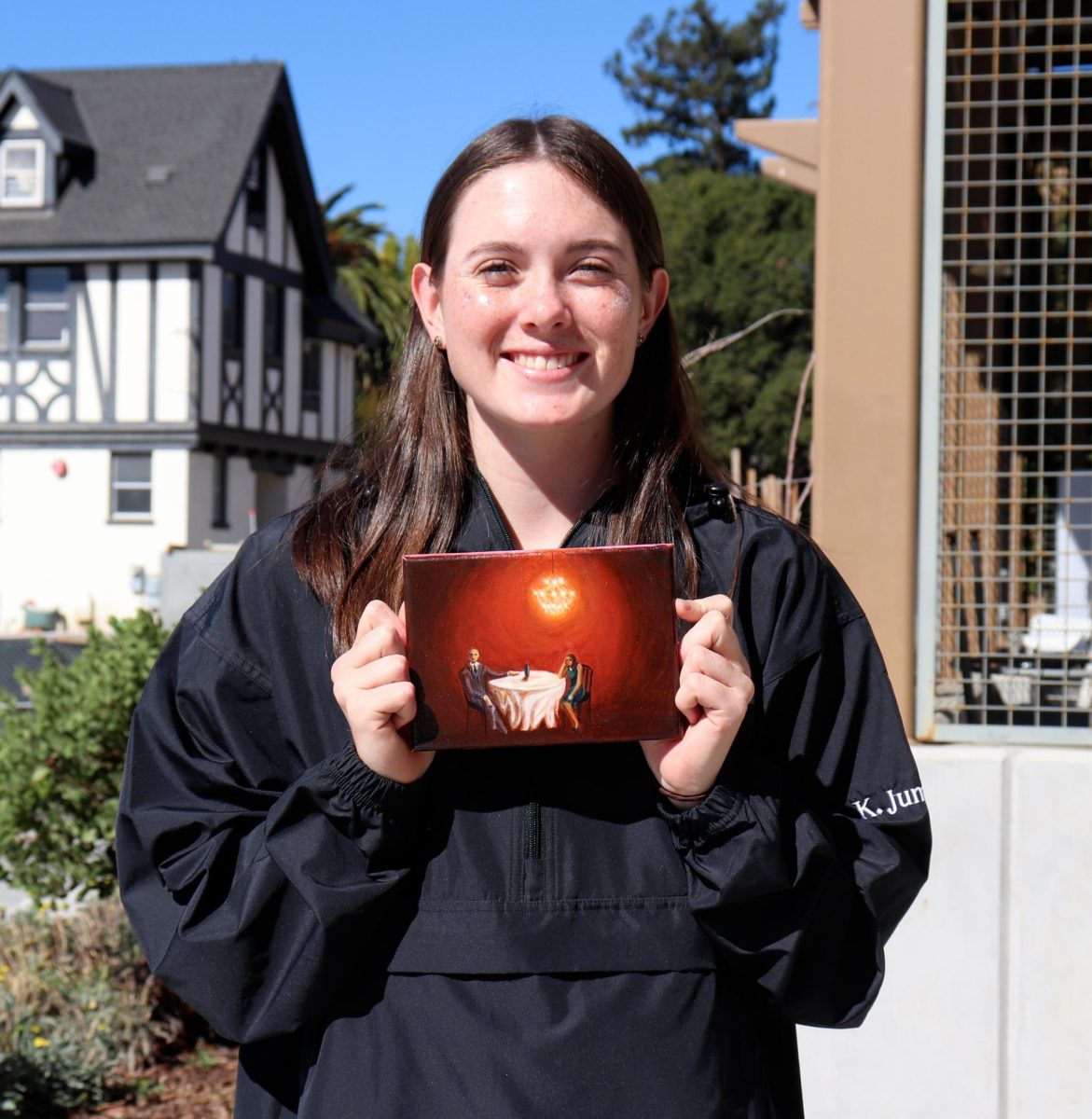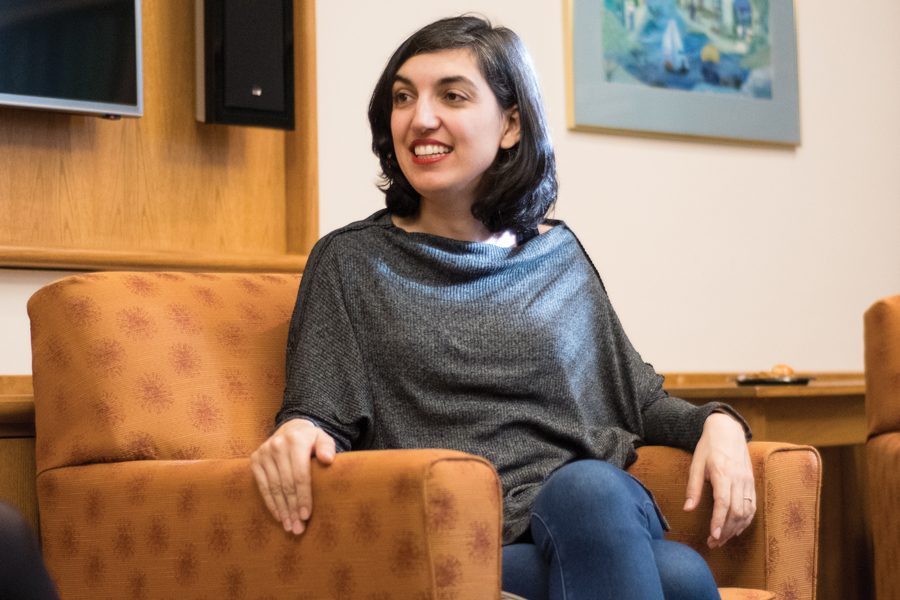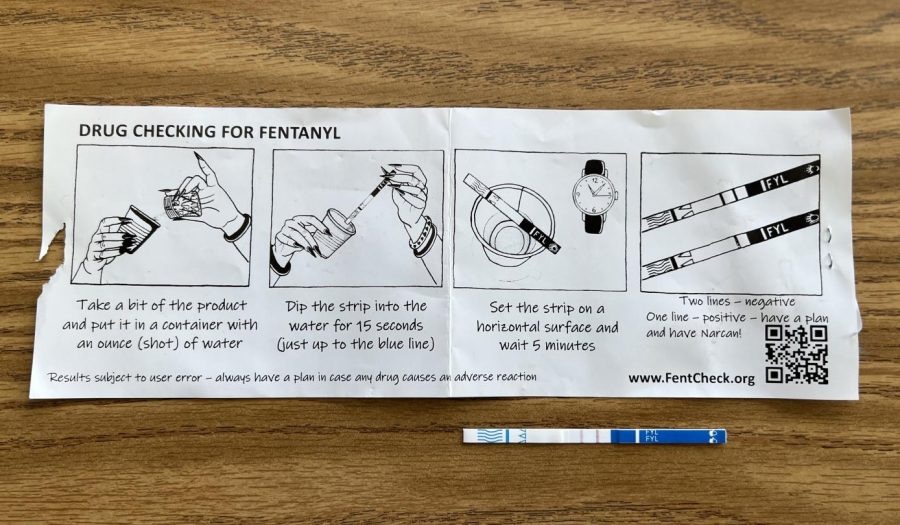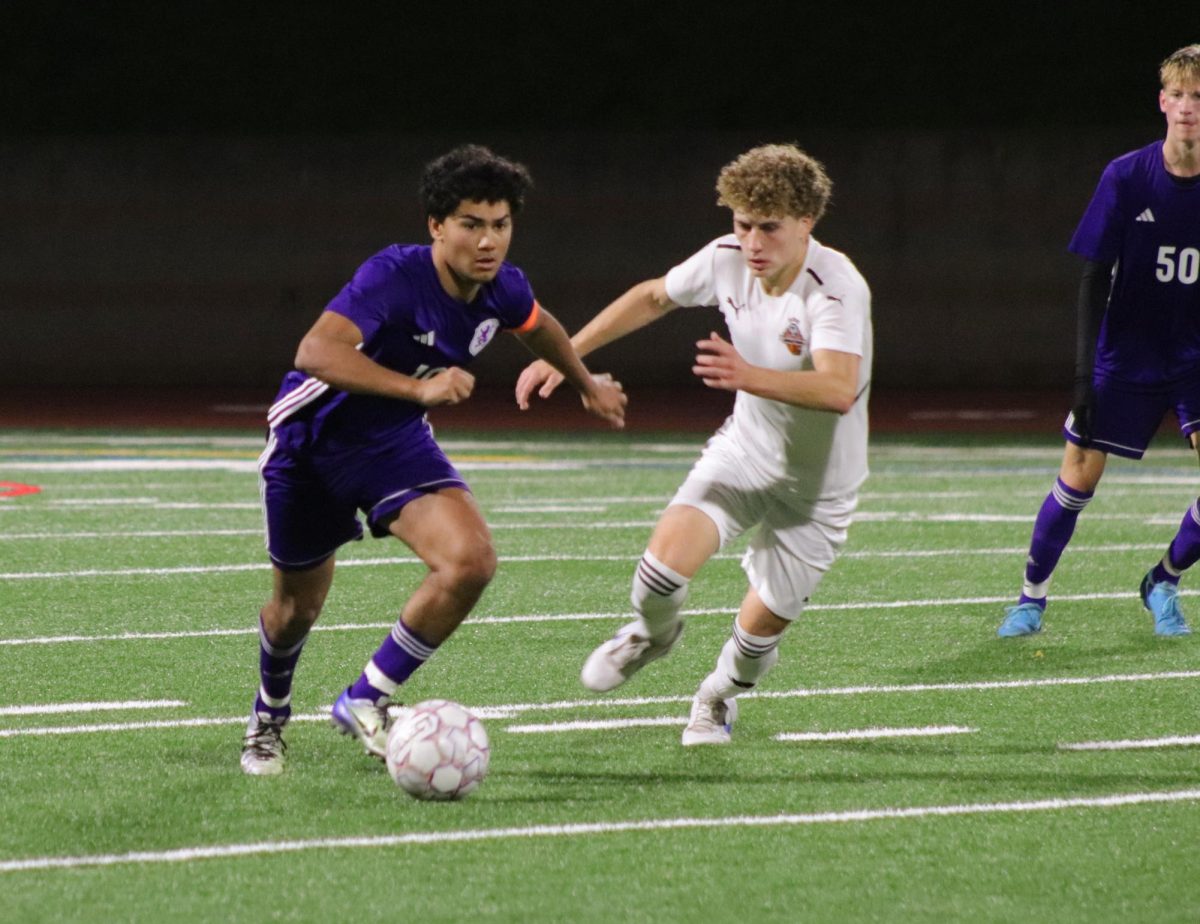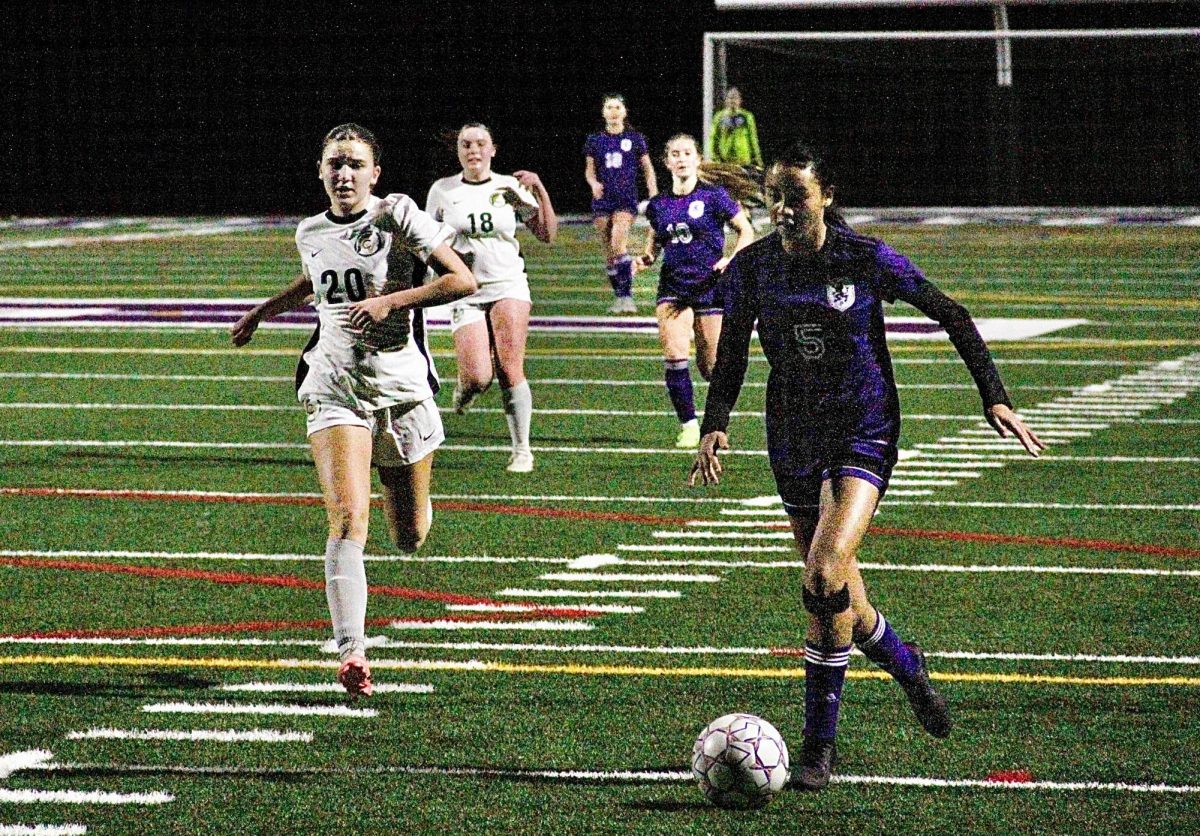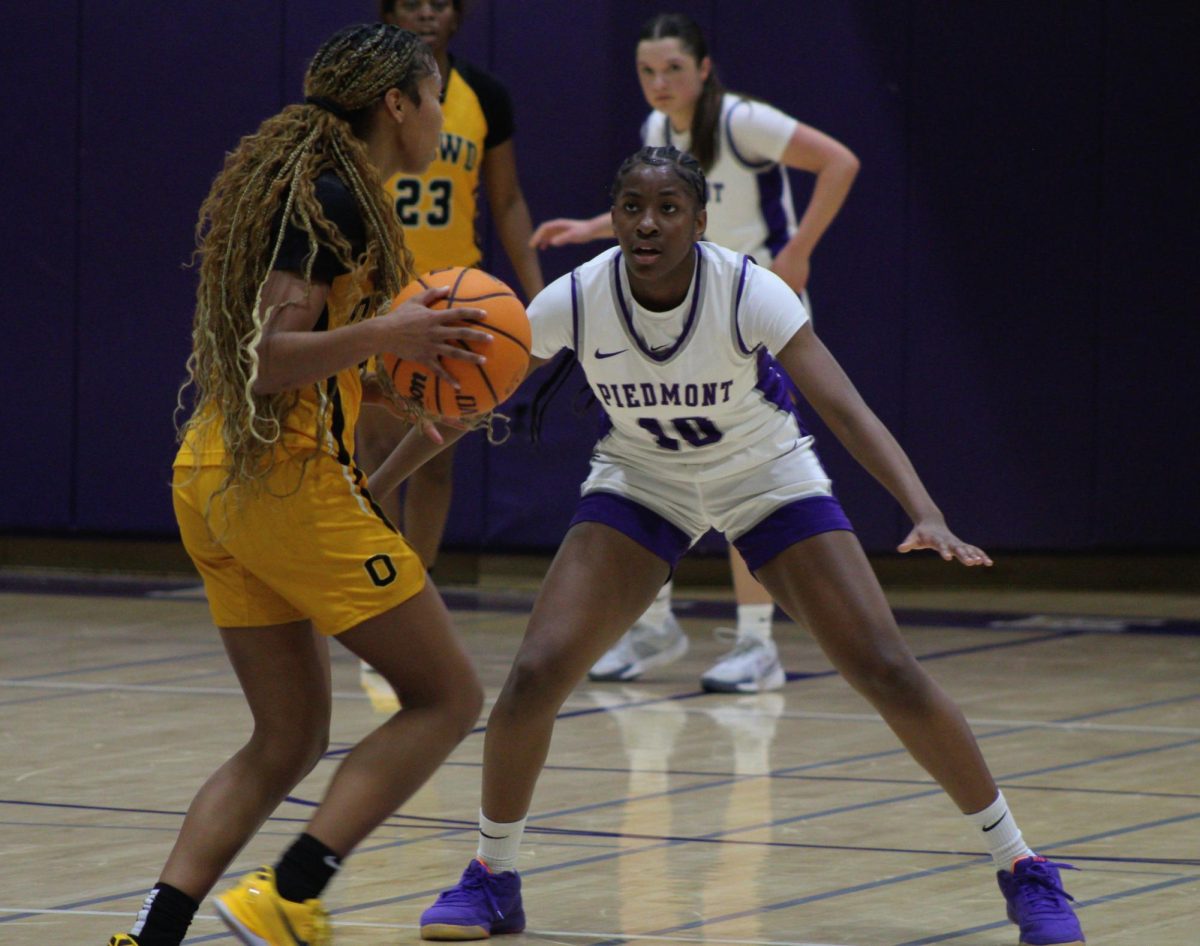Due to large class sizes, the administration has decided to offer another section of English 5-6, which begins on Oct. 5. Valentina Gnup will teach the class sixth period, and juniors can switch in on a voluntary basis.
Principal Brent Daniels and superintendent Randall Booker made the decision to hire another teacher and create a new section of English 5-6 after department chair Beth Black told Daniels that the classes were too big.
“All the junior English classes are really highly impacted,” junior English teacher Jody Weverka said.
Four of the seven junior English classes originally had over 30 students, but the new class will be smaller than the existing sections because the administration does not plan to force students to switch their schedules, Mapes said.
“We don’t want to turn students away [from Honors English],” principal Brent Daniels said. “There could be a complaint about class size, but would you want to be that one students that didn’t get to take the class?”
Before the new section of regular English 5-6 had been created, the administration told students that they could not switch out of Honors English due to class size constraints. With the creation of the new section, however, honors students who elect to enroll in the new class will not receive the ten percent grade penalty that has traditionally accompanied the switch.
“I want to switch into regular English because I’m in over my head with challenging classes,” junior Elijah Levy said. “It just comes down to me not having enough hours in the day to get everything that I need to do finished.”
Both Weverka and English teacher Mercedes Foster said that class sizes have grown in recent years, which means that scheduling has become less flexible and teaching has become more challenging.
Foster said that 25 students used to be considered a large class, and she had to get new chairs added to accommodate her English 7-8 classes, both of which have 33.
“It feels like three classes of work, and it means you can’t give as much homework or have the the turnaround be quite as quick,” Foster said. “It’s overwhelming.”
The English department wanted to create new class for both junior and senior English, but funding meant that they had to pick one.
“If the juniors fall behind and don’t get what they need, they are behind for their senior year, and it becomes a two-year issue instead of a one year issue,” Foster said.
Class sizes generally follow a 28 to 1 ratio, but to meet students’ academic needs, classes must sometimes be larger. Since funding allows for a finite number of class sections, offering small AP classes might mean that other subjects and departments get fewer sections, Daniels said.
“In all classes, it’s ideal to have low student-teacher ratios, but in English, where there’s a lot of writing and students need a lot of feedback, that [low ratio] can have a different type of benefit,” he said.
Junior Eva Mills said that having a large class makes it hard for students to share their opinion and hold a discussion when everyone gets to participate equally.
“It doesn’t mean you can’t teach 31 kids — of course you can,” Weverka said. “But it makes it especially difficult in an English class to give any kind of meaningful feedback.”
Large classes pose a logistical problem as well, said Weverka.
“Kids like to go [to class] early because some people don’t get chairs,” said junior Willy Matsuno, who is in Shimyun Cotter’s sixth period class with 33 other students.
Overall, he feels that the large class size does not really affect the students, although he said that it probably makes it harder for the teacher to keep track of everyone.
“It’s difficult to be sure you talk [to students] and you act human and you look them in the eye when there are 31 of them,” Weverka said. “So much of the teaching experience has to do with the relationship that you have with students.”
Daniels said that creating a new class after a month of instruction is atypical for Piedmont.
“However, it’s not atypical for us to do whatever is needed to meet the needs of our students and staff,” he said.


















